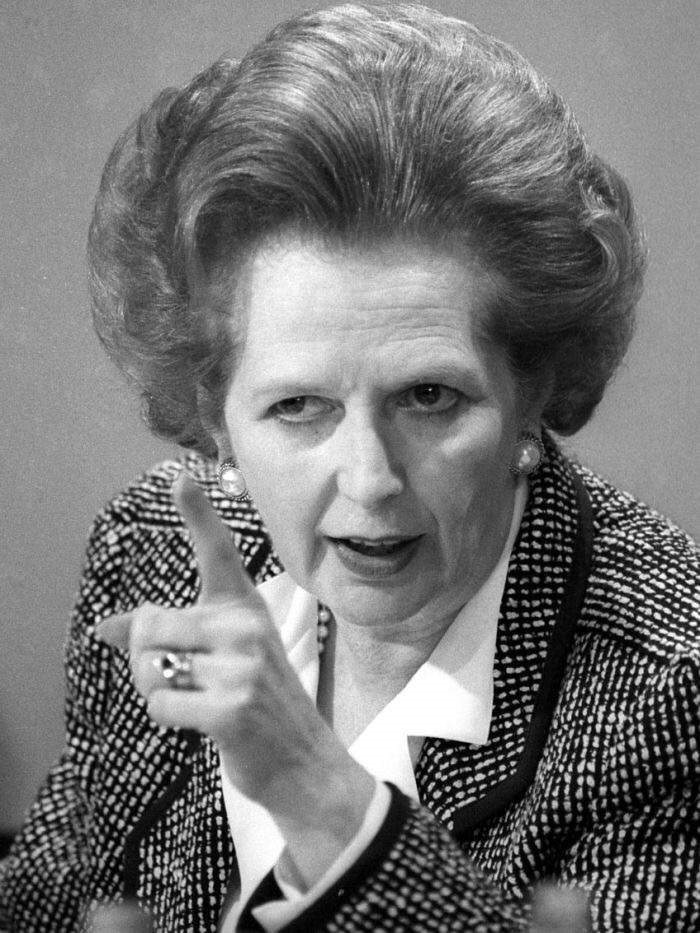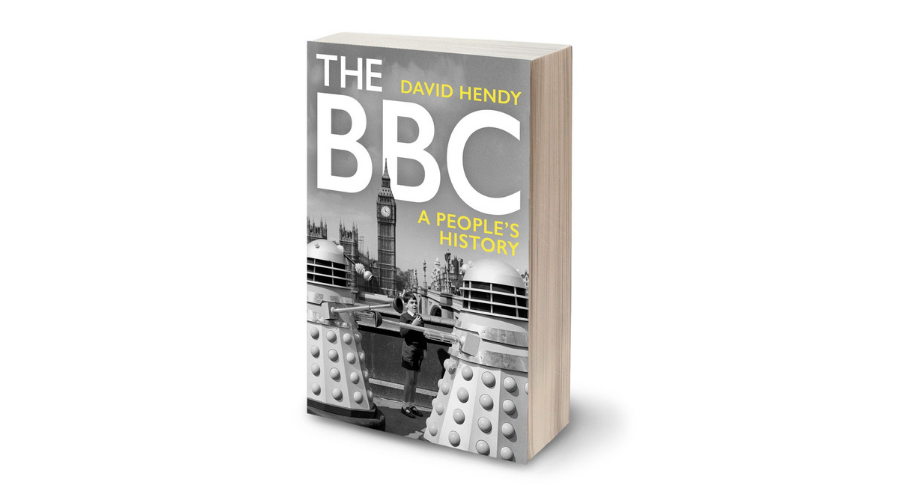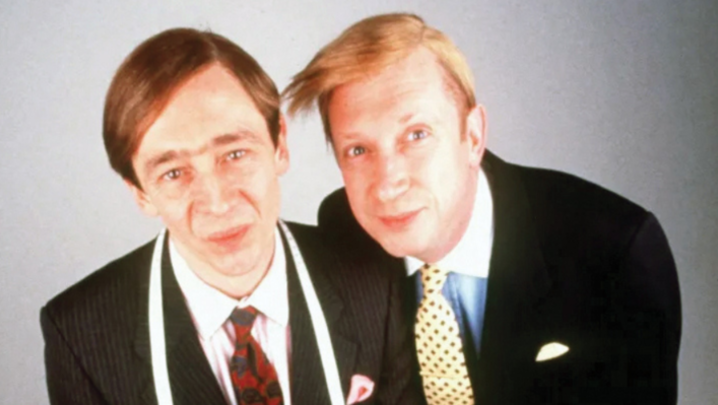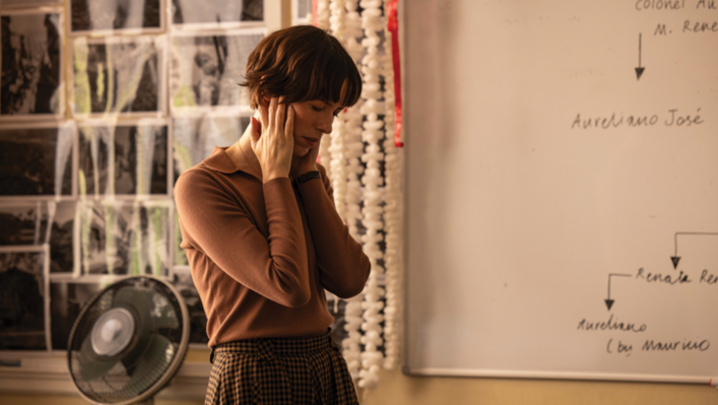Narinder Minhas enjoys the colour, but thinks more intellectual muscle would have been appropriate in the Beeb’s centenary year
Everyone has a story about when they first became aware of the BBC. For me, it was when I was roused from sleep by the sound of a TV programme my mum was watching. Picture this: a little boy trudging downstairs in his PJs to see what was so thrilling that it warranted his dear mum waking herself (and him!) so early on a Sunday morning, only to find that it was a show about British electrical plugs. And, no, I’m not joking.
The show was Nai Zindagi Naya Jeevan, or, in English, New Way, New Life. Catchy title? I think not. It was aimed at Asian immigrants like me and my family and, although it was full of useful info on how to adapt to your new surroundings, to say it was seriously lacking in entertainment value would be an understatement. But achieving two out of three of the Reithian trinity of information, education and entertainment wasn’t a bad strike rate.
My point is that the BBC’s influence on each of our lives can’t – and shouldn’t – be understated. And this remarkable influence is what David Hendy sets out to understand in his new book, The BBC: A People’s History. Hendy illustrates the BBC’s impact perfectly: “If nuclear war begins, the last voice of authority we will hear before Armageddon arrives will be a Radio 4 announcer.” He’s so right, although I really don’t need him to be proved right anytime soon (are you listening, President Putin?).
To call the story of the BBC sprawling would be selling it short. As Hendy tells us, it has broadcast between 10 and 20 million programmes. The corporation has become so multifaceted that, in truth, there is not just one history to this organisation, but thousands.
That’s where Hendy’s book falters slightly: he tries to cover too much ground. As we know, Asa Briggs struggled to encapsulate the BBC’s history in five thick volumes, over 35 years of his life. Even then, he confessed it was “a history and not the history”.
So, is it possible to write the whole story of the BBC in one book? Well… no. And Hendy seems to agree. He knew this was going to be a struggle from the outset. Look no further than the very first sentence of the book: “Is a history of the BBC even possible?”
Where the book shines, however, is in its description of key moments and characters. I love the introduction of founder Cecil Lewis: “Well over six feet tall, exuberant and quick-witted, married to the glamorous young daughter of an exiled White Russian general”. In those days, wasn’t everybody married to a Russian general’s daughter? The best historians are often some of the best storytellers, capable of capturing the mood and spirit of the time. Hendy is no exception.
The early years of the BBC read like a 1920s mystery novel. We’re in the Savoy district, “a slightly seedy rectangle of narrow, sloping streets where a series of undistinguished offices are clustered. Here, three men stand huddled together, deep in thought.” These three shady characters would shortly become the founders of the BBC: Lewis, Arthur Burrows and, the most famous of all, John Reith.
The section on the Second World War is where Hendy really succeeds. Take the vignette about the radio presenter who is at Broadcasting House reading the news when a bomb falls on the building. After a brief pause and a reshuffling of his papers, he carries on reading. Could anything encapsulate British wartime stoicism more? Talk about “Keep calm and carry on.”
I also love the three simple rules BBC journalists had to follow so their words wouldn’t provide clues to the enemy. Don’t mention any numbers, don’t give away locations of bomb drops – and the third order, one that goes against the very essence of Britishness: don’t talk about the weather.

‘The Prime Minister set her sights on a radical overhaul of broadcasting itself’
But how did the BBC deal with impartiality during these years? Can you be non-partisan when it comes to the Nazis? The stance, unsurprisingly, was that “deliberate perversion of the truth” should be avoided, but the corporation couldn’t help “being sucked into the propaganda war”. The government knew that propaganda would be more likely to get through if it was spread by the trusted BBC. This brought into focus a “close but fretful” relationship between the government and the broadcaster, a tension between state interference and editorial independence.
It is impossible to look at the issue of the BBC’s independence without considering Margaret Thatcher’s impact. During the Falklands war, the feathers of BBC sceptics were ruffled when Newsnight’s Peter Snow faced the camera and unwittingly expressed the BBC’s “moral equivalence” over the conflict. His use of the words “British troops” rather than “our troops” led the Thatcher-loving Sun to brand the BBC “a traitor in our midst”.
According to Hendy, the Thatcher years altered the internal environment of the BBC. It became “a potent brew of political, commercial and personal hostility”, and the Prime Minister set her sights on a “radical overhaul of broadcasting itself” and that sometimes scary word, “reform”. What follows is a tale of high politics, betrayal, Tory scepticism and a relentless PR war.
The BBC had its problems under New Labour, too. Look no further than 29 May 2003. A journalist on the Today programme, Andrew Gilligan, goes off-piste, and accuses Downing Street of sending British troops into Iraq based on a lie: “Here was a BBC correspondent alleging [that] the Prime Minister had deliberately and consciously misled the nation”. Gilligan’s claims were later found to be false by a government inquiry led by Lord Hutton (though the succeeding Chilcot Inquiry came to different conclusions). “Well, boys,” said Director-General Greg Dyke, “We’ve been fucked.” Journalism within the BBC was never the same again. In classic BBC fashion, there was a massive overreaction, and the institution beat itself up. Strict new rules and regulations led many to ask if the freedoms of journalists had been stifled.
The issue of impartiality has not gone away. Last year, Ofcom found that audiences “consistently rate the BBC less favourably” for impartiality. How do we fix this? Can the BBC ever be considered truly independent when government chooses its senior figures and sets the licence fee? How do you create and maintain a publicly funded institution? Can it continue its current public service content with shrinking funding? Is it too obsessed with ratings and competing with commercial channels? Can it redefine how success is measured? How do we save the BBC?
It would have been good if Hendy had addressed these issues, particularly through some of the debates and internal disputes that we’ve seen over the past 10 years. For instance, how has the Boris Johnson era influenced such debates? And what are the solutions? The answer, some think, is to introduce a democratic process for selecting senior figures, which would reduce governmental control. Some believe an entire structural overhaul is necessary. What most can agree on is that some kind of change is needed.
If this book were a TV show, it would be on at 7:00pm. You’ve just got home from work and have put dinner on and are looking for something that’s “a bit of a warm bath”, as commissioning editors would say. You find a show that has some great characters and you feel a bit smug after you’ve watched it. But, in the end, you think it maybe went on a bit too long.
While the book is packed with great stories and interesting characters, there is something missing: a thesis. It does not feel as if there’s a real argument pulling us through the anecdotes.
As the BBC approaches its centenary, it’s an important moment to write its history. As the historian EH Carr said, “We can fully understand the present only in light of the past.” The landscape of TV is changing and, with the licence fee under threat, the future feels less certain than ever. If ever there was a time to look back at where we came from, it is now.
Narinder Minhas is Co-Managing Director of Cardiff Productions.







